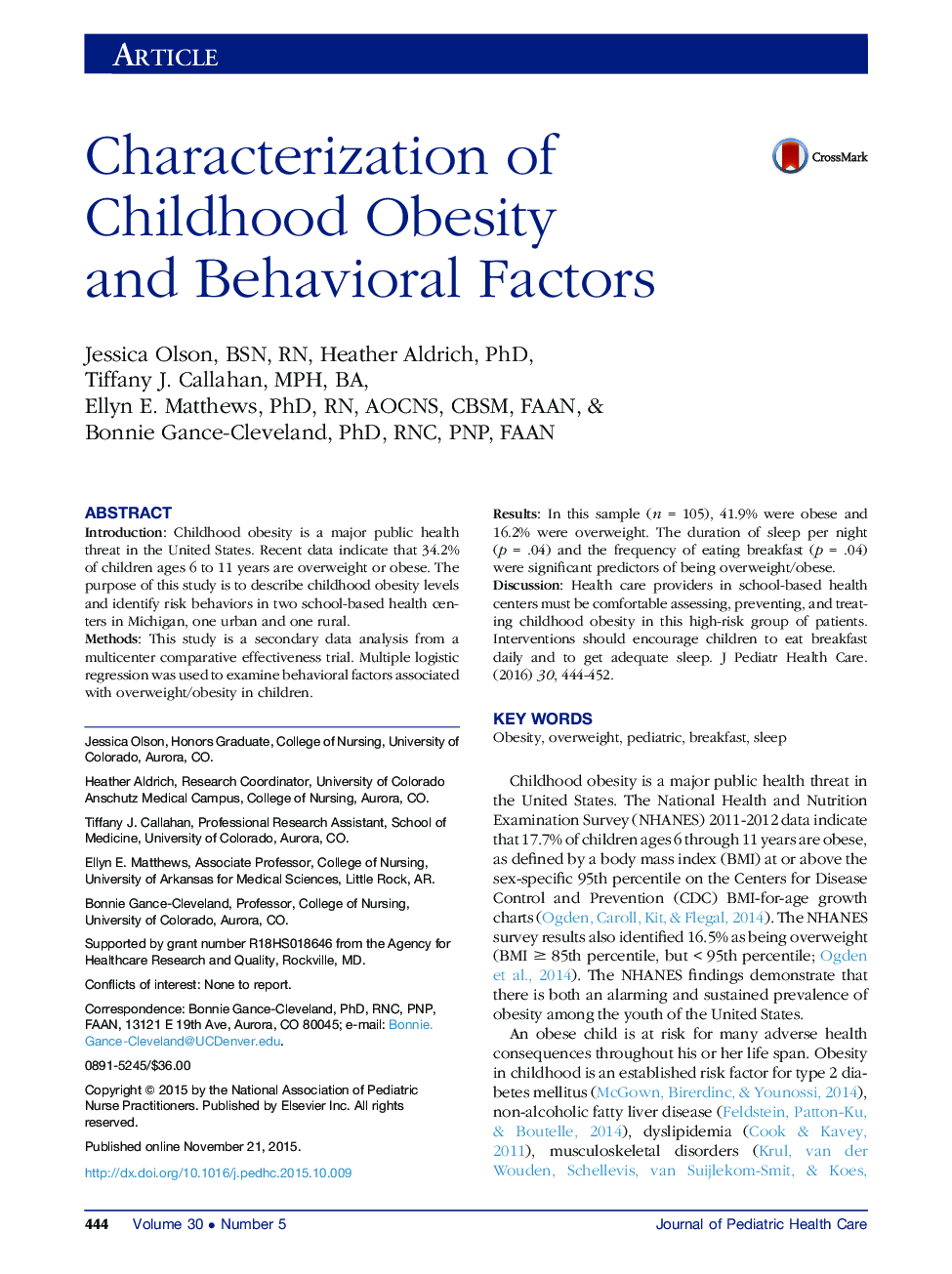| Article ID | Journal | Published Year | Pages | File Type |
|---|---|---|---|---|
| 2663949 | Journal of Pediatric Health Care | 2016 | 9 Pages |
•In this sample of Michigan children, 41.9% were obese and 16.2% were overweight.•Sleep duration was found to be a significant predictor of overweight/obese status.•Frequency of breakfast consumption was a significant predictor of overweight/obesity.
IntroductionChildhood obesity is a major public health threat in the United States. Recent data indicate that 34.2% of children ages 6 to 11 years are overweight or obese. The purpose of this study is to describe childhood obesity levels and identify risk behaviors in two school-based health centers in Michigan, one urban and one rural.MethodsThis study is a secondary data analysis from a multicenter comparative effectiveness trial. Multiple logistic regression was used to examine behavioral factors associated with overweight/obesity in children.ResultsIn this sample (n = 105), 41.9% were obese and 16.2% were overweight. The duration of sleep per night (p = .04) and the frequency of eating breakfast (p = .04) were significant predictors of being overweight/obese.DiscussionHealth care providers in school-based health centers must be comfortable assessing, preventing, and treating childhood obesity in this high-risk group of patients. Interventions should encourage children to eat breakfast daily and to get adequate sleep.
